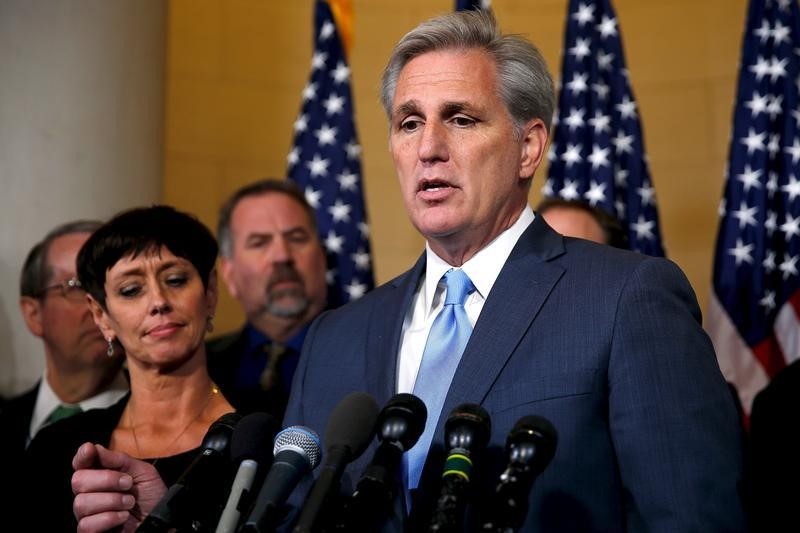Investing.com’s stocks of the week
By Andy Sullivan and Ginger Gibson
WASHINGTON (Reuters) - In Washington, Republicans are rudderless after their candidate to lead the House of Representatives drops out. On the campaign trail, seasoned conservatives struggle in the presidential race while a reality TV star alienates the nation's fastest-growing slice of the electorate.
Since 2010, Republicans have harnessed the anti-establishment energy of the Tea Party movement to win control of Congress and recruit a deep field of candidates for the November 2016 presidential election.
Now that insurgent fervor threatens the party's ability to govern effectively and win over new voters, strategists warn. While many Americans share Republicans' skepticism of government, they also need to show they are capable of handling power responsibly - or else face punishment from voters next year.
"I think conservatives are in real danger," said David Bozell, president of the conservative advocacy group For America. "They kind of caught the dog by the tail and they didn't know what to do next."
Short-term, Republicans will have to solve a leadership vacuum in Congress ahead of difficult votes on the debt limit and the budget.
It is not clear who will be in charge. House Republican Leader Kevin McCarthy suddenly dropped out the race to succeed retiring Speaker John Boehner on Thursday, saying he was unable to unite moderates and conservatives who have clashed repeatedly over tactics.
Like Boehner, McCarthy faced skepticism from a group of 40 or so Tea Party lawmakers in the Freedom Caucus who viewed him as too willing to compromise with Democratic President Barack Obama.
It was a surprising fall for McCarthy, who had been quickly amassing power amid Tea Party successes.
Boehner has not shied from confrontation with the White House. He led a white-knuckle showdown over the debt ceiling in 2011 that nearly led to a government default and presided over a 16-day federal shutdown in 2013. Republican approval ratings plunged after both events.
But he has also been forced to rely on Democratic votes at times due to conservatives' refusal to compromise.
Republicans say that while conservative icons such as Ronald Reagan often settled for compromises that advanced his goals, ideological fervor has blinded new lawmakers to the incremental reality of governing in Washington.
"They've elected an entire generation of members who have little idea how to actually run the Congress they preside over," said Joe Brettell, a Republican strategist and former House staffer. "They are out of ideas, out of candidates and soon, they will be out of time with voters," he said.
Conservative activists say the party will settle on a successor who will be more willing to take the fight to Obama.
"You can't force the president to the negotiating table if you keep capitulating," said Adam Brandon, the head of FreedomWorks, a grassroots Tea Party group closely aligned with the Freedom Caucus.
That anti-establishment sentiment has also shaped the campaign trail this year, as political neophytes such as real-estate mogul and reality TV star Donald Trump and retired surgeon Ben Carson outpace more experienced candidates like former Florida Governor Jeb Bush, the early pick of wealthy donors.
Party strategists worry their unvarnished criticism of Muslims and Hispanic immigrants could complicate the eventual nominee's efforts to expand the party beyond its base of aging white voters.
If Republicans have one factor working in their favor, it is the short memories of American voters, who blamed the party for the government shutdown in 2013, only to hand them control of the Senate a year later.
"It's going to require the party to do some fixing, but there is some time," said John Feehery, a former House leadership aide who now works as a Republican strategist.
